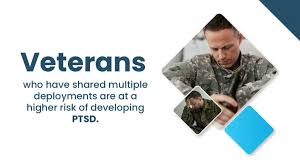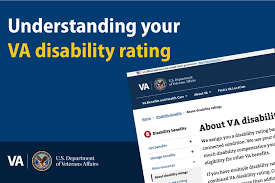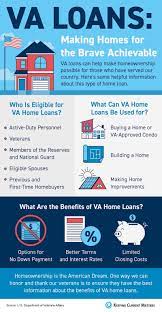Help for Veterans with PTSD
Post-Traumatic Stress Disorder (PTSD) is a serious mental health condition that can affect individuals who have experienced traumatic events, such as military combat. Veterans are particularly vulnerable to developing PTSD due to the nature of their service.
Fortunately, there are resources available to help veterans cope with and manage their PTSD symptoms. Seeking help is the first step towards recovery. Here are some ways in which veterans can get assistance:
- Therapy: Cognitive Behavioral Therapy (CBT) and other forms of therapy have been shown to be effective in treating PTSD. Veterans can seek therapy through the VA or private practitioners.
- Medication: In some cases, medication may be prescribed to help manage symptoms of PTSD, such as anxiety and depression. It is important for veterans to consult with a healthcare provider before starting any medication.
- Social Support: Connecting with other veterans who have experienced similar traumas can provide valuable support and understanding. Support groups and peer counseling programs can be beneficial.
- Lifestyle Changes: Engaging in regular exercise, maintaining a healthy diet, getting enough sleep, and avoiding alcohol and drugs can all contribute to improved mental health for veterans with PTSD.
If you or a veteran you know is struggling with PTSD, it is important to reach out for help. The VA offers specialized programs and services for veterans with PTSD, including counseling, support groups, and treatment options. Remember that seeking help is a sign of strength, not weakness.
Together, we can support our veterans in overcoming the challenges of PTSD and lead them towards a path of healing and recovery.
Comprehensive Support for Veterans with PTSD: Tailored Therapy, Expert Care, and Community Connection
- Specialized therapy programs tailored to veterans’ needs
- Access to experienced mental health professionals with expertise in treating PTSD
- Support groups that provide a sense of community and understanding
- Availability of medication options to help manage symptoms
- Resources for family members to better understand and support veterans with PTSD
- Opportunities for veterans to connect with peers who have similar experiences
Challenges Veterans Face in Accessing PTSD Support and Treatment
- Limited availability of specialized PTSD treatment centers
- Stigma surrounding mental health issues may prevent veterans from seeking help
- Long wait times for appointments with mental health professionals
- Side effects of medications used to treat PTSD can be challenging
- Difficulty in finding therapists or counselors with experience in treating military-related trauma
- Financial barriers to accessing quality mental health care services
- Reluctance to engage in therapy due to fear of reliving traumatic experiences
Specialized therapy programs tailored to veterans’ needs
Specialized therapy programs tailored to veterans’ needs offer a crucial advantage in addressing the unique challenges faced by veterans with PTSD. These programs are designed to provide targeted support that takes into account the military background and experiences of veterans, creating a safe and understanding environment for healing. By focusing on the specific needs of veterans, such therapy programs can effectively address PTSD symptoms and help individuals develop coping strategies that are relevant to their service-related traumas. This personalized approach not only enhances the effectiveness of treatment but also reinforces a sense of camaraderie and trust among veterans seeking help for their mental health struggles.
Access to experienced mental health professionals with expertise in treating PTSD
Access to experienced mental health professionals with expertise in treating PTSD is a crucial benefit for veterans seeking help for their condition. These professionals have specialized training and knowledge in understanding the complexities of PTSD and can provide effective treatment strategies tailored to each individual’s needs. Their expertise allows veterans to receive comprehensive care and support, leading to better outcomes and improved quality of life. By having access to such skilled professionals, veterans can feel confident that they are receiving the best possible care for their mental health needs.
Support groups that provide a sense of community and understanding
Support groups that provide a sense of community and understanding offer a valuable pro for veterans with PTSD. Connecting with peers who have experienced similar traumas can create a supportive environment where veterans feel understood and accepted. In these groups, veterans can share their experiences, emotions, and coping strategies, knowing that they are not alone in their struggles. The sense of camaraderie and empathy within support groups can help veterans feel validated and supported as they navigate their journey towards healing and recovery from PTSD.
Availability of medication options to help manage symptoms
One significant advantage of seeking help for veterans with PTSD is the availability of medication options to help manage symptoms. Medications prescribed by healthcare providers can assist in alleviating symptoms such as anxiety and depression, allowing veterans to better cope with the challenges of PTSD. By having access to these medications, veterans can experience improved mental well-being and a higher quality of life as they work towards recovery and healing from their traumatic experiences.
Resources for family members to better understand and support veterans with PTSD
Having resources available for family members to better understand and support veterans with PTSD is a crucial aspect of helping veterans on their journey to recovery. By educating family members about the challenges and symptoms of PTSD, they can provide a supportive environment that promotes healing and understanding. Family members play a significant role in the veteran’s support system, and having access to resources that help them navigate the complexities of PTSD can strengthen relationships and improve overall well-being for both the veteran and their loved ones.
Opportunities for veterans to connect with peers who have similar experiences
One significant advantage of seeking help for veterans with PTSD is the opportunity for them to connect with peers who have had similar experiences. Building connections with others who understand the challenges of living with PTSD can provide a sense of camaraderie, support, and understanding that is crucial for healing and recovery. Peer support programs offer veterans a safe space to share their stories, exchange coping strategies, and offer mutual encouragement, fostering a sense of community and solidarity among those who have served. By connecting with peers who have walked a similar path, veterans can feel less isolated and more empowered on their journey towards healing.
Limited availability of specialized PTSD treatment centers
One significant challenge faced by veterans seeking help for PTSD is the limited availability of specialized treatment centers dedicated to addressing their specific needs. Due to the complex nature of PTSD and the unique experiences of veterans, access to specialized care can be limited in certain regions, leading to long wait times or having to travel long distances to receive treatment. This lack of availability can hinder veterans’ ability to access timely and tailored care, potentially delaying their recovery process and exacerbating their symptoms. Efforts are needed to expand resources and increase accessibility to specialized PTSD treatment centers for veterans in need.
Stigma surrounding mental health issues may prevent veterans from seeking help
The stigma surrounding mental health issues can be a significant barrier for veterans seeking help for PTSD. Many veterans may feel ashamed or fear judgment from others if they admit to struggling with their mental health. This stigma can lead to feelings of isolation and prevent veterans from reaching out for the support they need. It is crucial to break down these barriers and create a culture of understanding and acceptance, so that veterans feel empowered to seek help without fear of judgment or discrimination. By addressing the stigma surrounding mental health, we can ensure that all veterans have access to the care and support they deserve.
Long wait times for appointments with mental health professionals
One significant challenge that veterans with PTSD often face is the long wait times for appointments with mental health professionals. The delay in accessing care can exacerbate symptoms and create additional stress for individuals already struggling with the effects of trauma. Long wait times can hinder timely intervention and support, impacting the overall well-being and recovery process of veterans. It is crucial to address this issue by improving access to mental health services and reducing wait times to ensure that veterans receive the timely care and support they need to manage their PTSD effectively.
Side effects of medications used to treat PTSD can be challenging
One significant challenge in providing help for veterans with PTSD is the potential side effects of medications used in treatment. While medication can be effective in managing symptoms of PTSD, such as anxiety and depression, the side effects can be challenging for some individuals. Common side effects may include drowsiness, weight gain, nausea, and dizziness, among others. These side effects can impact a veteran’s daily life and well-being, making it important for healthcare providers to closely monitor and adjust medication regimens as needed to minimize these challenges and ensure the best possible outcomes for veterans undergoing treatment for PTSD.
Difficulty in finding therapists or counselors with experience in treating military-related trauma
One significant challenge for veterans seeking help with PTSD is the difficulty in finding therapists or counselors with experience in treating military-related trauma. Many mental health professionals may not have specialized training or understanding of the unique experiences and issues faced by veterans. This lack of expertise can hinder effective treatment and make it harder for veterans to connect with someone who truly comprehends their struggles. As a result, veterans may face barriers in accessing appropriate care tailored to their specific needs, potentially prolonging their journey towards healing and recovery.
Financial barriers to accessing quality mental health care services
Financial barriers can present a significant challenge for veterans seeking quality mental health care services for PTSD. The cost of therapy sessions, medication, and other treatments can be prohibitive for many veterans, especially those who may already be facing financial difficulties. Limited insurance coverage or high out-of-pocket expenses can further hinder access to the necessary care. These financial barriers can prevent veterans from receiving timely and effective treatment, potentially exacerbating their PTSD symptoms and impacting their overall well-being. Addressing these financial obstacles is crucial to ensure that all veterans have access to the mental health care they need and deserve.
Reluctance to engage in therapy due to fear of reliving traumatic experiences
One significant challenge in providing help for veterans with PTSD is their reluctance to engage in therapy due to the fear of reliving traumatic experiences. Many veterans may avoid seeking treatment because they are afraid that discussing their traumatic memories will only intensify their emotional distress. This fear can act as a barrier to receiving the necessary support and care needed for managing PTSD symptoms effectively. Overcoming this reluctance requires a sensitive and understanding approach from healthcare providers to create a safe space for veterans to address their concerns and work through their trauma in a supportive environment.



